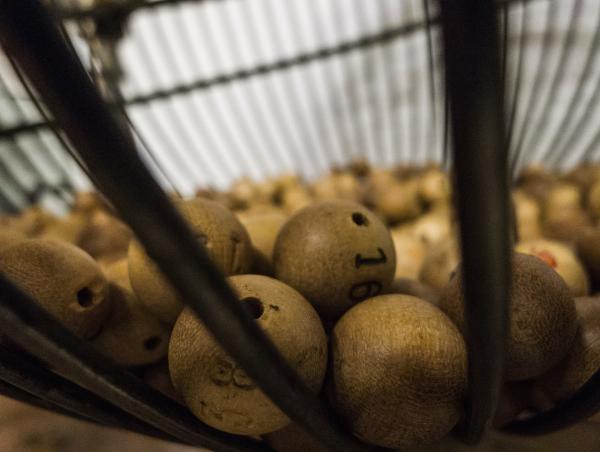Donuts, beer, college scholarships, cash, trucks, and even guns. That's the list of incentives several state governments are offering people to get COVID-19 vaccines. Last month, the media speculated that such lotteries might convince fence-sitters to get their shots, and preliminary reports suggested that these efforts have yielded mixed results. Unfortunately, they may have been too optimistic.
The lotteries, for reasons we'll examine below, probably won't produce the hoped-for results. Let's look at the numbers and then explore some possible explanations.
Data start to trickle in
According to a recently published study, lotteries have so far done very little to entice the vaccine-hesitant. The researchers evaluated CDC daily adult vaccination rates per 100,000 people in Ohio and the US as a whole before and after Ohio announced its lottery, from April 15 to May 12 and May 13 to June 9. Conclusion:
The study did not find evidence that a lottery-based incentive in Ohio was associated with increased rates of adult COVID-19 vaccinations. In contrast, the analyses suggest that the rate of decline in vaccinations slowed to a greater extent in the US than in Ohio after the May 12 lottery announcement.
The researchers noted that their results are limited by the accuracy of the CDC's data. Nonetheless, “Further evidence supporting the effectiveness of lotteries … are needed prior to widespread and potentially costly adoption,” they wrote.
The Good news
The upside is that we've made significant progress against COVID-19 thus far. Just under 80 percent of those 75 and older are fully vaccinated and more than 85 percent have received one dose, meaning the most vulnerable to severe infection and death are now largely protected. Almost 60 percent of adults (age 18 and up) are fully vaccinated, and a little over 67 percent have had one dose. Nearly half the US population is fully vaccinated.
Because there were millions more asymptomatic or mild infections in younger age groups than originally thought, it's likely “that a higher level of infection-induced immunity exists in the U.S. population than previously predicted,” a July 7 study in Science Translational Medicine reported. The Yale School of Public Health and the Commonwealth Fund announced the same day that
The number of cases has fallen from more than 300,000 per day at the apex of the pandemic in January 2021 to less than 20,000 per day in mid-June. The precipitous decline in U.S. cases is especially impressive as more transmissible variants have emerged in recent months, including the B.1.1.7 (Alpha), P.1 (Gamma), and B.1.617.2 (Delta) variants.
These numbers don't excuse the remaining vaccine hesitancy, but they are good news nonetheless.
Why might lotteries fail?
A little reflection suggests that lotteries may fail because they don't address the underlying concern about the vaccines. I suspect, based on earlier research, that the root problem is distrust in the governments and medical establishment now promoting the shots, not the shots themselves. Activists like Mike Adams, who claim the vaccines are mind-control tools and bioweapons, certainly contribute to the problem and should be called out for the nonsense they promote. But contrarians of that sort appeal to an already distrustful demographic. Consider a few things the US has experienced over the last 18 months:
- Public health experts responsible for mitigating infectious disease outbreaks said, during a pandemic no less, that they're eager to tackle politicized issues like gun violence, racism, and climate change, even though Americans don't want them to.
- Our national discourse is increasingly moderated by social media giants that ban users and suppress content based on what politicians say is an acceptable opinion; Facebook now allows users to discuss a possible lab-leak origin for SARS-COV-2 because the Biden Administration determined it was a viable hypothesis.
- At the same time that elected officials were telling us to "stay home, stay safe," some of them, like California Governor Gavin Newsom, were out having dinner, unmasked and unvaccinated, with their lobbyist friends.
- Anyone who pointed out that stay-at-home orders caused serious collateral damage was compared to a racist evolution denier.
What do these examples communicate to the people we're literally paying to get vaccinated? They show that the pandemic response was often political, and that our leaders didn't take COVID seriously enough to follow their own rules. Newsom, even while apologizing, said he was outdoors (he wasn't) and that he was in a low-risk county, as if that justified his hypocrisy. With all this in the rearview mirror, it's not surprising that lotteries haven't enticed vaccine-hesitant Americans.
The solution is pretty simple: the political establishment needs to acknowledge these mistakes and avoid them in the future. But that's unlikely, because “most of us find it difficult if not impossible to say 'I was wrong; I made a terrible mistake,” psychologists Carol Tavris and Elliot Aronson wrote in Mistakes Were Made, But Not By Me:
The higher the stakes—emotional, financial, moral—The greater the difficulty. It goes further than that. Most people, when confronted with evidence that they are wrong, do not change their point of view or plan of action but justify it even more tenaciously. Politicians, of course, offer the most visible and, often, most tragic examples of this practice.
We're watching this play out in real-time. The Pope recently accused anyone who has refused to be vaccinated of “suicidal negationism”; the media continues to call for mandatory immunization, and the federal government seems convinced that Americans just don't have enough information about where to get their shots.
If this is where the analysis stops, we'll never solve the problem.




